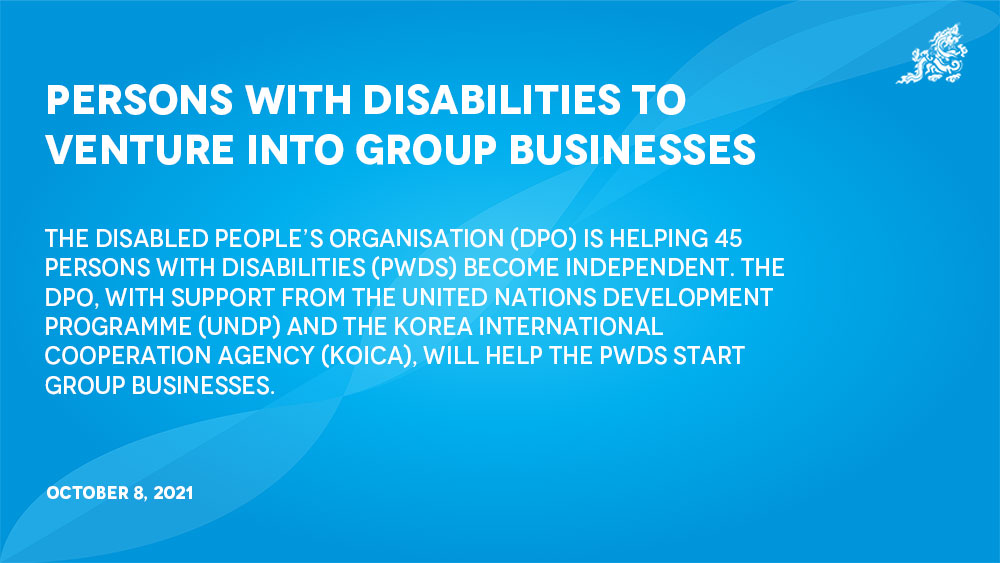Yangyel Lhaden
The Disabled People’s Organisation (DPO) is helping 45 persons with disabilities (PwDs) become independent. The DPO, with support from the United Nations Development Programme (UNDP) and the Korea International Cooperation Agency (KOICA), will help the PwDs start group businesses.
The support includes equipment such as musical, tailoring, bakery, and candy manufacturing equipment.
This is part of a joint initiative called Economic Empowerment of PwDs aimed at enhancing their economic empowerment.
The joint project aligns with the National Policy for Persons with Disabilities 2019, which calls for the enhancement of the economic security of the PwDs by equipping them with vocational and entrepreneurial skills and providing an accessible workplace.
The businesses include a bakery called Healthy Options in Motithang, which will be run by 15 PwDs, and a tailoring business called Lhagoe Tailoring in Olakha, which employs 17 PwDs.
A group of six PwDs will operate a candy production house called Bhutan Centre for Disabilities in the Hongkong Market area of Thimphu. A music tuition centre called Kuenphel Entertainment will be established in Pamtsho with seven PwDs.
The beneficiaries of the tailoring and bakery businesses are undergoing training initiated by DPO in collaboration with the Ministry of Labour and Human Resources, which runs until the end of October. The beneficiaries of the candy business and the music school, on the other hand, were skilled but they could not start businesses due to lack of capital.
DPO executive director Sonam Gyamtsho said the music tuition and candy production businesses are expected to begin soon, while the tailoring and bakery businesses will start by November after they complete their training. “To help them immediately utilise their newly acquired skills, the equipment support will help them kickstart their business.”
He said it is a common assumption that PwDs were incapable to live an independent life but in reality, what they need are opportunities and support to make them capable.
According to the Bhutan Vulnerability Baseline Assessment 2016, pervasive negative attitudes exhibited in the form of stigma, discrimination, and exclusion remain a major challenge facing the PwDs.
Pasang Dema, 31, a member of Lhagoe Tailoring, said that she has been living as a dependent in the village all her life. “I can finally become independent.”
Her colleague Dawa Dema said that the skills would enable her as well as her friends to stand on their own feet. “We will prove that persons with disabilities can work and lead independent lives like any other person, given an opportunity.”
Kuenga Dorji, a member of the candy business said that this support was critically important to create gainful opportunities for PwDs, as skill alone is not enough. “Concrete support enables us to become independent and reduce the social burden we place on our families and society.”
Sonam Gyamtsho said that Healthy Options will be looked after by Bhutan Stock Foundation, which will guide them, and tailoring beneficiaries will be guided by an instructor for a year, as they build experience.
He said that other PwDs, upon completion of their skills training, will be introduced to these businesses in future.
Edited by Tshering Palden


